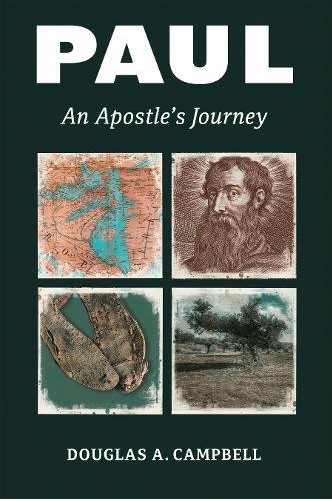 In the second chapter of his book Beginnings: Ancient Christian Readings of the Biblical Creation Narratives Peter Bouteneff discusses the uses of the creation narrative in the New Testament. The most important New Testament references are in the Pauline literature – which Bouteneff takes to include Ephesians, Colossians, and 2 Thessalonians. He considers the Pastoral epistles separately.
In the second chapter of his book Beginnings: Ancient Christian Readings of the Biblical Creation Narratives Peter Bouteneff discusses the uses of the creation narrative in the New Testament. The most important New Testament references are in the Pauline literature – which Bouteneff takes to include Ephesians, Colossians, and 2 Thessalonians. He considers the Pastoral epistles separately.
Paul was an educated Jew of his day and he uses the scriptures in a method entirely consistent with Second Temple Judaism – although his conclusions are distinctively Christian. He now reads the scripture through the lens of his Damascus Road experience and the corporate experience of the early Christians. Bouteneff notes:
To Paul – the first Christian interpreter of the OT – the Scriptures speak of, anticipate, typologize, reveal, Christ, and him crucified. In effect, Paul takes the spectrum of Jewish hermeneutical methods – literal, allegorical, midrashic – and uses these instruments in a completely new way. In so doing, he says things that are revolutionary to the Jews, but in a language and framework very much their own. (p. 36)
One of the revolutionary developments in Paul deals with sin and redemption. It is suggested by some that a more traditional Jewish reading sees “sin as an act that can be repented of but Paul sees it as a condition from which we are freed and redeemed in Christ.” Paul uses the creation narratives to tell this story of redemption.
Bouteneff suggests that Paul’s use of the creation narratives in general and of Adam in particular is first and foremost Christ-centered. Paul did not start with a problem (sin) and look for a solution (Christ). He started with Christ and looked for ways to express the glory of the gospel of Christ in his day, age, and context. Col. 1:15-17, 1 Cor. 8:6 are key here – Christ is the image of the invisible God, the firstborn of all creation, all things have been created through Him, by Him, and for Him, in Him all things hold together, and we exist through Him. This theme is not limited to Paul, and is also seen in Hebrews 1:2 and John 1:3. This Christ-centered focus in Paul must be recalled when reading both Romans 5 and 1 Cor. 15.
For his starting point and focus are not finally sin (which is old news) but rather that which was new: Jesus Christ, Lord and Savior. Paul does nothing less than define the direction and the sequence, as it were, of Christian reflection on Christ. This direction is not the one commonly associated with Christianity, namely, a kind of chronological sequence from a perfect pre-fallen state, to a one-event calamitous fall, and then to salvation that comes in 33 CE. It is a sequence that begins with Christ himself: rather than Adam being a model or image for humanity or even the first human being, it is Christ who is both. Christ is the first true human being, and Christ is the image of God and the model for Adam. (45)
When Paul focuses on Adam it is as an individual, but this is because he is developing a biblically based understanding of Christ. Adam is the primordial individual from whom all descend. He is the only suitable figure for describing the universal nature of redemption through Christ of Jew and Gentile alike. As man of dust he is the contrast to Christ, the life-giving spirit. But, for Paul, Adam was made for Christ – not Christ for Adam.
It seems clear that Paul’s view of the OT is centered in Christ. Adam is not the significant figure – Christ is the significant figure and the central figure in a Christian reading of history and a Christian reading of the Jewish scripture. The Western church however has read Romans 5 with Adam responsible for original sin, corrupting the nature of all who follow. This reading makes Adam the central figure – or so it seems to me. And this leads to a question I would like to address.
Is Original Sin a legitimate reading of Paul? Is this doctrine of Original Sin consistent with a Christo-centric reading of scripture? Why or why not?
Bouteneff, coming from an Orthodox perspective, suggests that the traditional Western view of original sin is a distortion – “The idea of “original sin” as a causal factor lies not with Paul but with Jerome and, on the basis of Jerome’s translation, with Augustine.(41)”
What do you think?
If you wish to contact me directly you may do so at rjs4mail [at] att.net.











